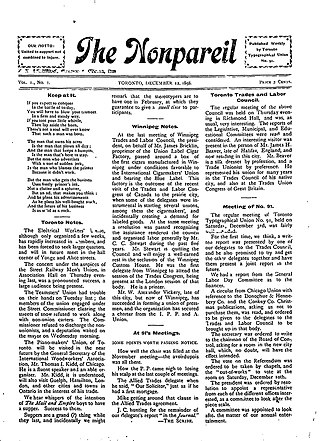Related Research Articles

The World Federation of Trade Unions (WFTU) is an international federation of trade unions established in 1945. Founded in the immediate aftermath of World War Two, the organization built on the pre-war legacy of the International Federation of Trade Unions as a single structure for trade unions world-wide, following the World Trade Union Conference in London, United Kingdom.

The One Big Union is an idea originating in the late 19th and early 20th centuries amongst trade unionists to unite the interests of workers and offer solutions to all labour problems.

The Amalgamated Engineering and Electrical Union (AEEU) was a British trade union. It merged with the MSF to form Amicus in 2001.

United Nations Security Council Resolution 678 was adopted on 29 November 1990. After reaffirming resolutions 660, 661, 662, 664, 665, 666, 667, 669, 670, 674 and 677, the council noted that despite all the United Nations efforts, Iraq continued to defy the Security Council.

The Communications Workers of America (CWA) is the largest communications and media labor union in the United States, representing about 700,000 members in both the private and public sectors. The union has 27 locals in Canada via CWA-SCA Canada representing about 8,000 members. CWA has several affiliated subsidiary labor unions bringing total membership to over 700,000. CWA is headquartered in Washington, DC, and affiliated with the AFL–CIO, the Strategic Organizing Center, the Canadian Labour Congress, and UNI Global Union.
The British Dietetic Association (BDA) is a trade union for dietitians in the United Kingdom. It was founded in 1936 and became a certified union in 1982. It is affiliated to the Trades Union Congress and the Scottish Trades Union Congress.

Communications, Energy and Paperworkers Union of Canada, abbreviated CEP in English and SCEP in French, was a largely private-sector labour union with 150,000 members, active from 1992 to 2013. It was created in 1992 through the merger of three unions: the Canadian Paperworkers Union, the Communications and Electrical Workers of Canada, and the Energy and Chemical Workers Union. See below for some other unions that were merged into the CEP. CEP/SCEP was affiliated to the Canadian Labour Congress.
Robert "Bob" Huget was a politician in Ontario, Canada. He was a New Democratic Party member of the Legislative Assembly of Ontario from 1990 to 1995, and served as a cabinet minister in the government of Bob Rae.

The Oil, Chemical and Atomic Workers Union (OCAW) was a trade union in the United States which existed between 1917 and 1999. At the time of its dissolution and merger, the International represented 80,000 workers and was affiliated with the AFL–CIO.

The Amalgamated Engineering Union (AEU) was a major British trade union. It merged with the Electrical, Electronic, Telecommunications and Plumbing Union to form the Amalgamated Engineering and Electrical Union in 1992.

The Electrical, Electronic, Telecommunications and Plumbing Union, known as the EETPU, was a British trade union formed in 1968 as a union for electricians and plumbers, which went through three mergers from 1992 to now be part of Unite the Union.
The United Paperworkers' International Union (UPIU) was a labor union representing workers involved in making paper, and later various industrial workers, in the United States and Canada.
Neil Reimer was an activist, trade unionist and politician in Canada.
The Trade Unions International of Miners was a trade union international affiliated with the World Federation of Trade Unions.
Amos N. Gray was a Liberian trade unionist. Born in Pull River, Maryland County, Gray attended primary school in Pull River and secondary school in Harper. He attended college in Monrovia, studying social studies for two years and law for one year. During his college years he worked part-time at the Freeport of Monrovia. Working at the port in 1960, he joined the Maritime and Dock Workers Union. After his college years he worked at the Maritime and Dock Workers Union office in Monrovia.

The Employees' Corps of the Republic of Indonesia, also known as the Indonesian Civil Servants Corps, is a state-regulated organisation of civil service employees.

The Toronto Typographical Union (TTU) was an early Canadian trade union in the printing industry. Founded in 1832, it came to prominence in 1872 when it organized a major strike in Toronto. Membership declined in the mid- to late-20th century as printing turned digital. By 1994, TTU had been absorbed by the Communications, Energy and Paperworkers Union of Canada.
The Communications and Electrical Workers of Canada (CWC) was a Canadian trade union.
The Canadian Paperworkers' Union (CPU) was a trade union.
The Canadian Chemical Workers' Union (CCWU) was a trade union in Canada.
References
- ↑ Directory of Labour Organizations in Canada, 1986. Labour Canada. 1986. p. 16.
- 1 2 Directory of Labour Organizations in Canada, 1988. Labour Canada. 1988. p. 18. ISBN 978-0-660-54244-7.
- ↑ Directory of Labour Organizations in Canada, October 1989. Labour Canada. 1989. p. xvii. ISBN 978-0-662-55431-8.
- ↑ Directory of Labour Organizations in Canada, 1990/91. Labour Canada. 1990. p. xvii. ISBN 978-0-662-55431-8.
- ↑ Directory of Labour Organizations in Canada, 1992–93. Labour Canada. 1992. p. xvii. ISBN 978-0-660-57415-8.
- ↑ Wayne Roberts (1990). Cracking the Canadian Formula: The Making of the Energy and Chemical Workers Union . Toronto: Between the Lines. p. 201. ISBN 978-0-921284-30-7.